12 Things You Should Never Store in an Outdoor Shed
It can be dangerous for you or for these items.
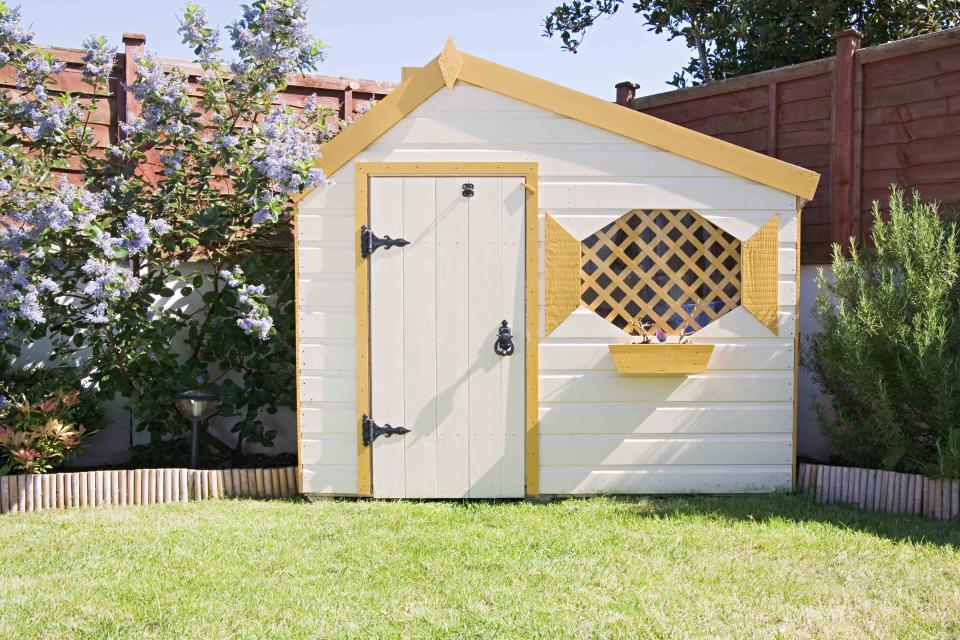
Image Source/Getty Images
If you've run out of space in your house or garage, an outdoor shed may seem like the ideal storage solution. But keep in mind that there are things you shouldn't store in an outdoor shed, whether it's for the safety of the items themselves or your own personal safety.
The biggest issue with storing things in an outdoor shed? It's the temperature extremes, says Jamie Hord, professional organizer at Horderly. "Temperature, whether hot or cold, can really be damaging to certain items. If you're looking to preserve items for longer, keep them in temperature controlled spaces."
Learn what shouldn't be stored in an outdoor shed—and why.
Related: 7 Ways You're Organizing Your Home Wrong, According to the Experts
Pantry Foods
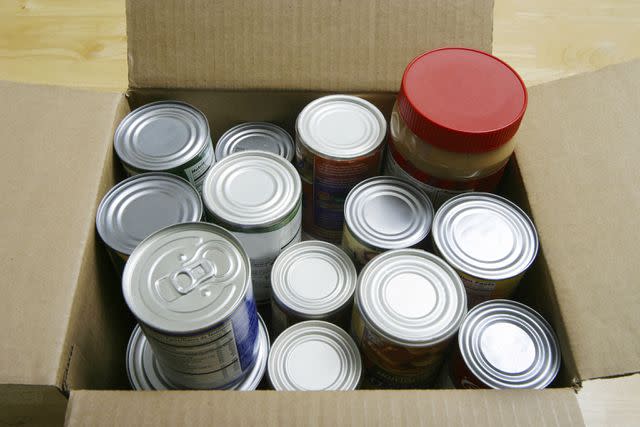
"A lot of people use their garage for pantry overflow, but temperature changes can make food spoil quicker," Hord says. That's especially true of products stored in paper boxes, such as crackers or dry pasta—which can attract moths, mice, and other pests.
Clothing and Other Fabric Items
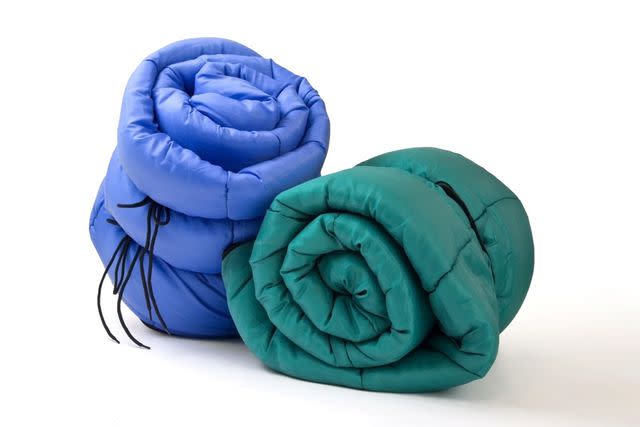
Out-of-season clothes, sleeping bags, and other fabric items may seem like a natural choice to store in a shed, but you may want to think twice. "These items can mold and get pests in them," Hord says. "If you are to store fabrics in the shed, covering them from dust can be good but could still lock in unwanted moisture. We use weathertight bins a lot," she adds.
Related: 11 Things You Should Never Store in Plastic Bins
Propane
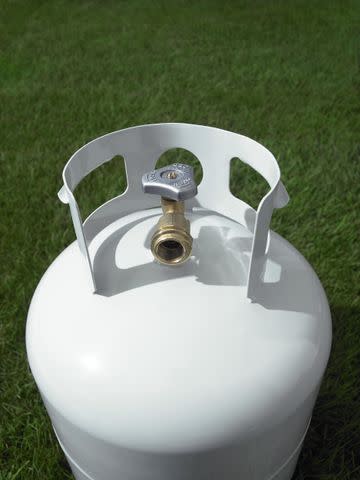
Propane tanks definitely don't seem like something you should store close to your home (and you're correct on that!). So why not a shed? A propane tank that leaks or gets damaged could easily set off a fire or explosion if the gas is allowed to build up in a closed area.
Your best bet? Keep that tank outdoors. (It was built for it!)
Important Papers
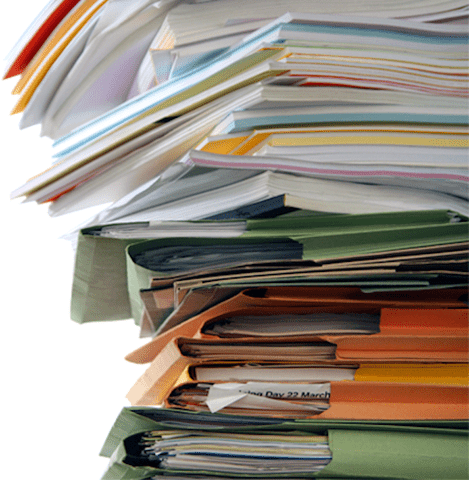
Paper is a material that doesn't stand up well to less-than-ideal conditions. And storing important papers in a shed or garage could subject them to pests, dirt, moisture, and other factors that could damage or destroy them.
Related: Here's How to Clean Your Paper Clutter for Good, According to Marie Kondo
Wine and Other Drinks
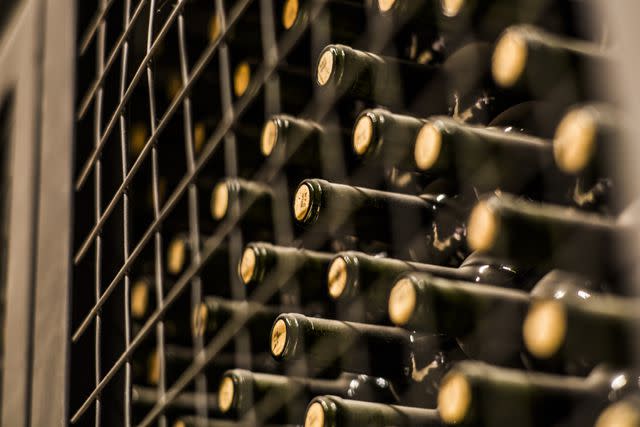
Getty Images / Tim Martin
Wine bottles on a shelfHord says wine and sodas can be impacted by the temperature extremes in a shed or other place without adequate temperature controls. At best, you may notice a difference in the quality or the taste of the drinks—at worst, it can make them spoil faster.
Electronics
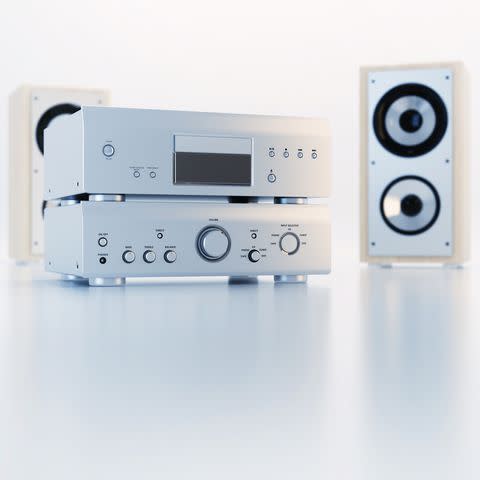
Once again, the temperature extremes in an outdoor shed could wreak havoc on the sensitive wiring in electronic equipment or damage the batteries within. Bring your electronics back in the house for safer storage.
Refrigerator or Freezer
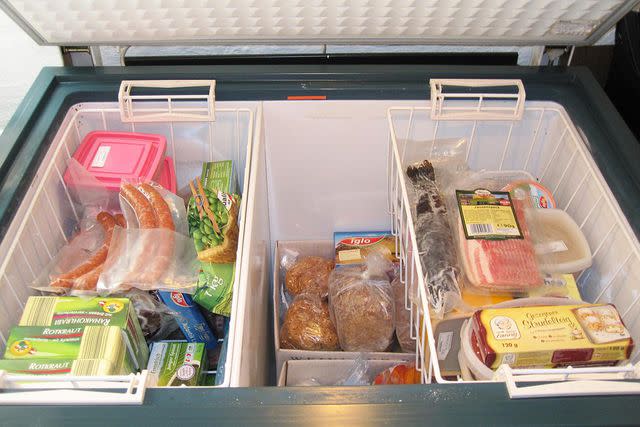
Many people rely on a fridge or freezer in the garage or shed for extra drinks and food storage, but Hord says that it may not be the best place for them. "The fridge has to work much harder in hot temperatures, which means it will be using up a lot more energy."
Books

Just like important papers, books can easily be damaged by moisture, pests, and dirt that's often found in sheds—and the changes in temperature could weaken the adhesives used for the binding.
Valuables

Some valuables, like paintings or fabric items, are more likely to get damaged by temperature extremes, pests, or just the potential dirt that may accumulate in an outdoor shed. But you should also keep in mind that your shed is likely less secure than other spots inside your home, which could lead to your valuables going missing.
A better option? A safe or more secure storage area inside your home.
Related: 7 Things You Should Never Store in Your Attic—Plus 5 Things You Should
Batteries
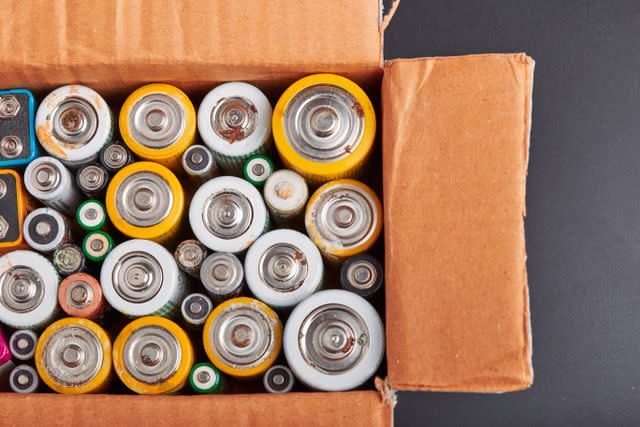
Fun fact: batteries stored at temperatures too high or too low will lose some of their power, so storing your batteries in an outdoor shed could shorten their lifespan. As a worst-case scenario, two batteries could create a spark and potentially cause a fire.
Wood Furniture
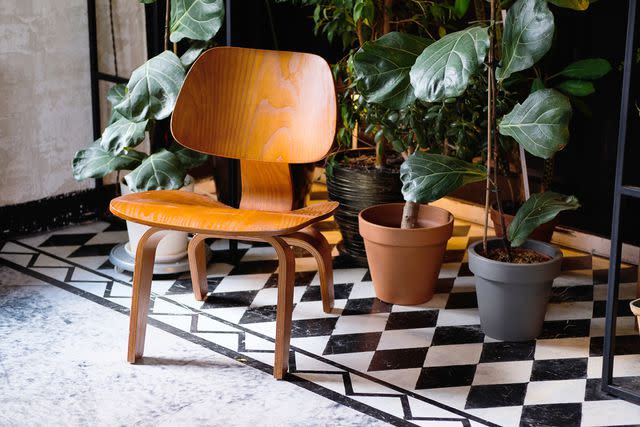
Aleksandr Zubkov/Getty Images
Temperature extremes can lead to your wooden furniture warping or cracking—and could weaken the glue used in joints. The only furniture suited for storing in an outdoor shed is your outdoor furniture, as it's made to weather temperature fluctuations.
Related: These Are the Biggest Outdoor Furniture Mistakes
Paint
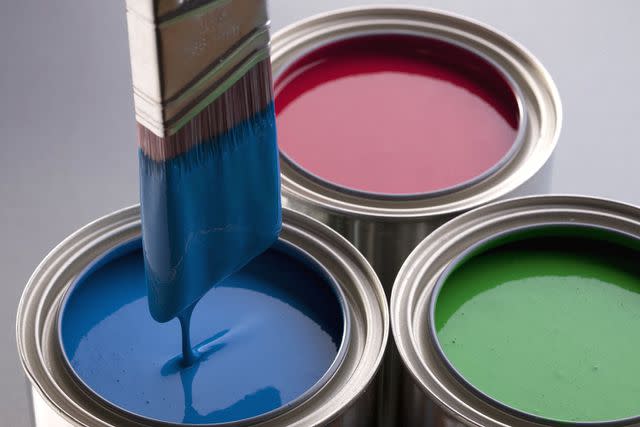
Yep, blame the temperature swings again. Paint is a pretty sensitive chemical mixture—and exposure to freezing temperatures can cause the paint to separate (and perhaps, not be usable afterward). Keep paint that you plan to use again for touchups inside your home in a temperature-controlled area instead.
For more Real Simple news, make sure to sign up for our newsletter!
Read the original article on Real Simple.


